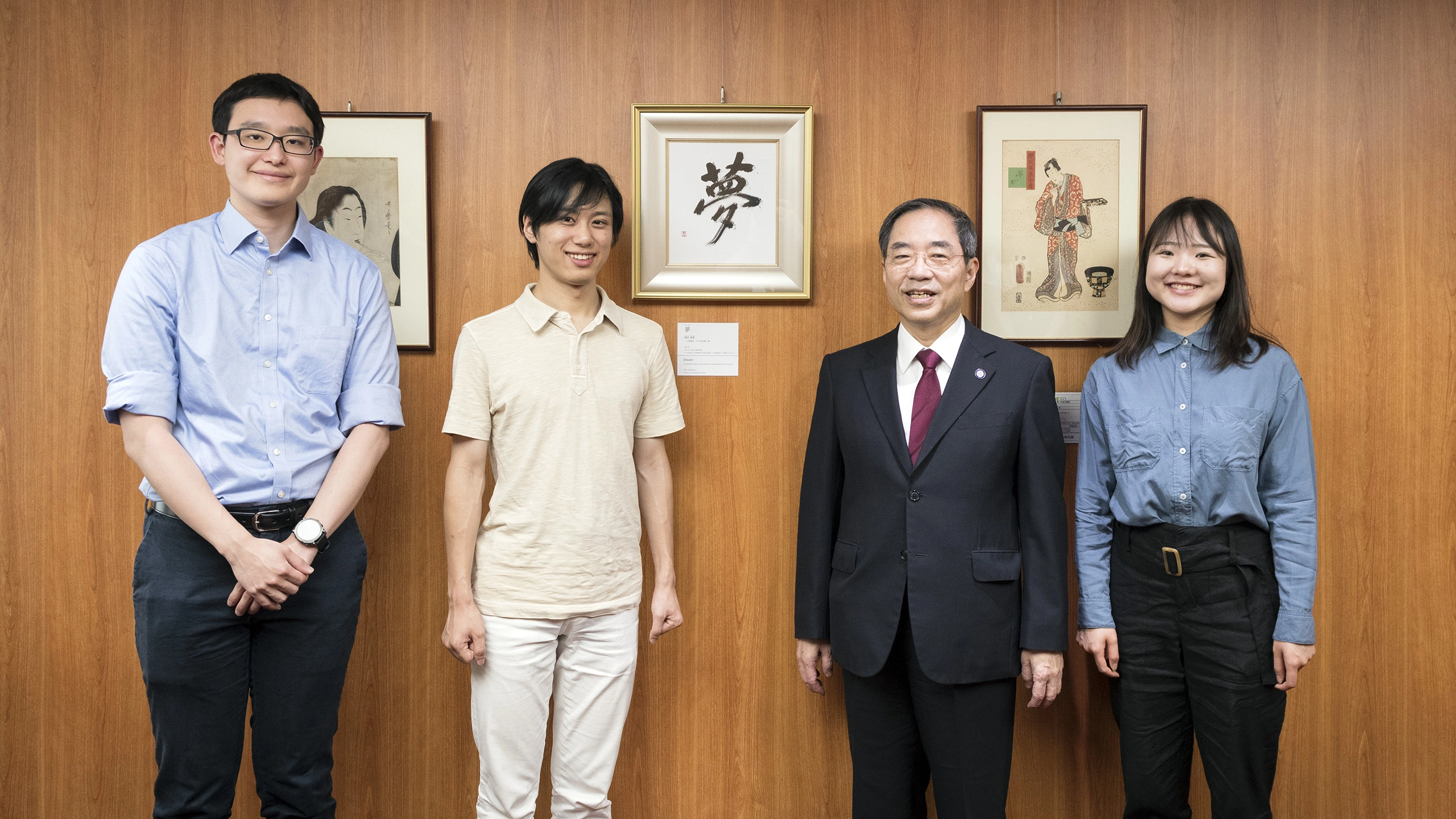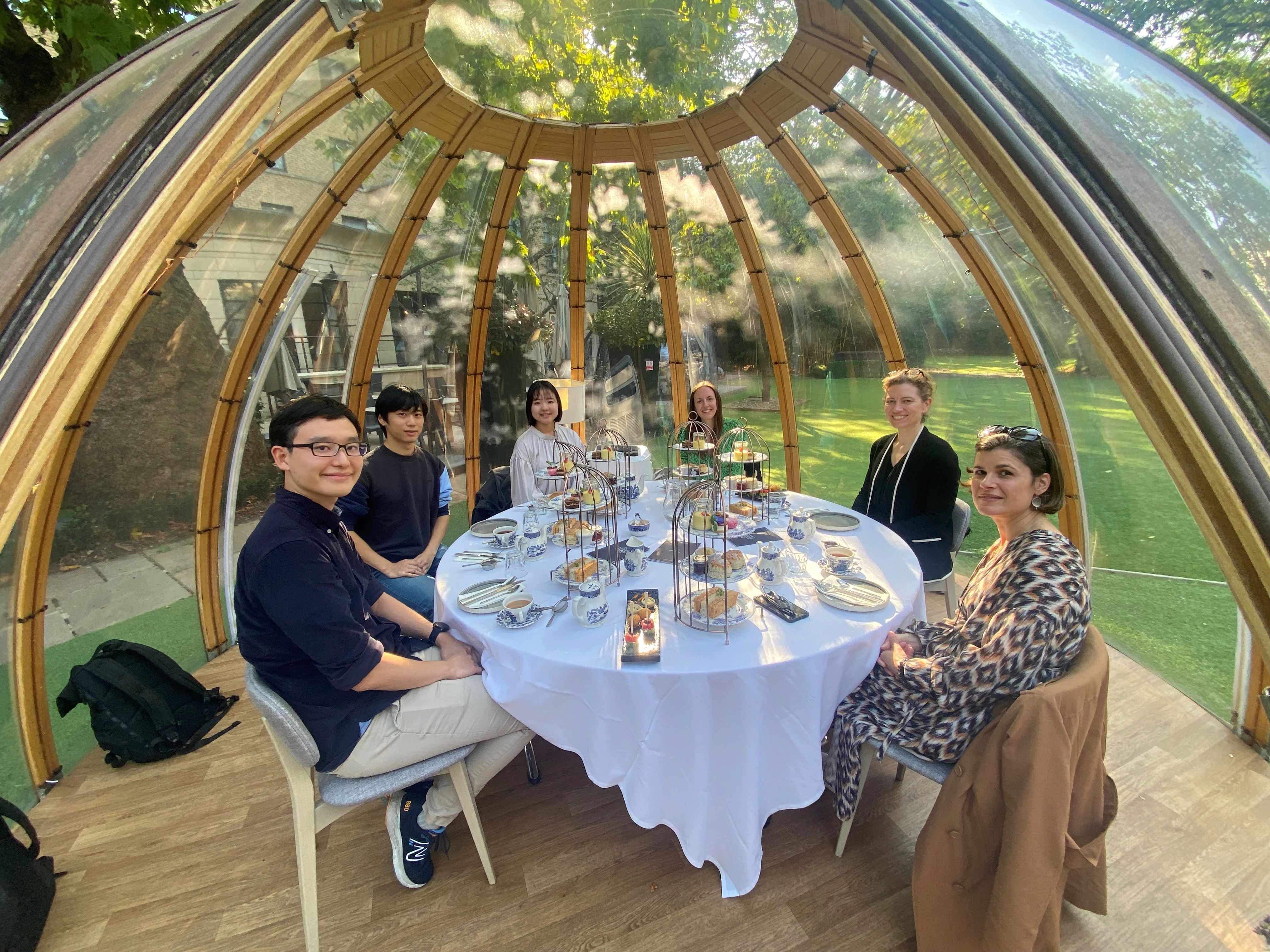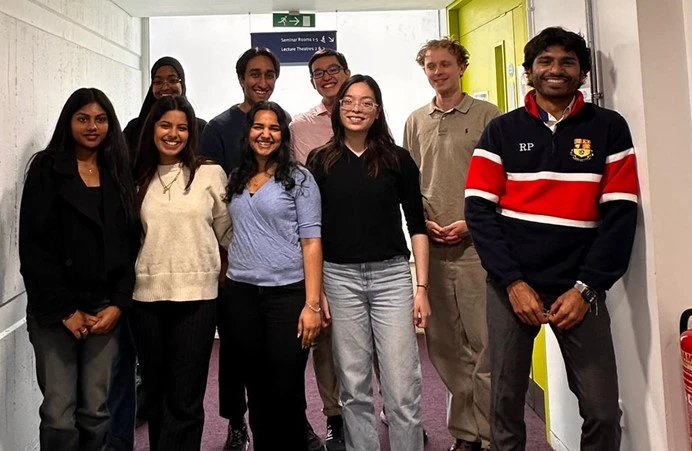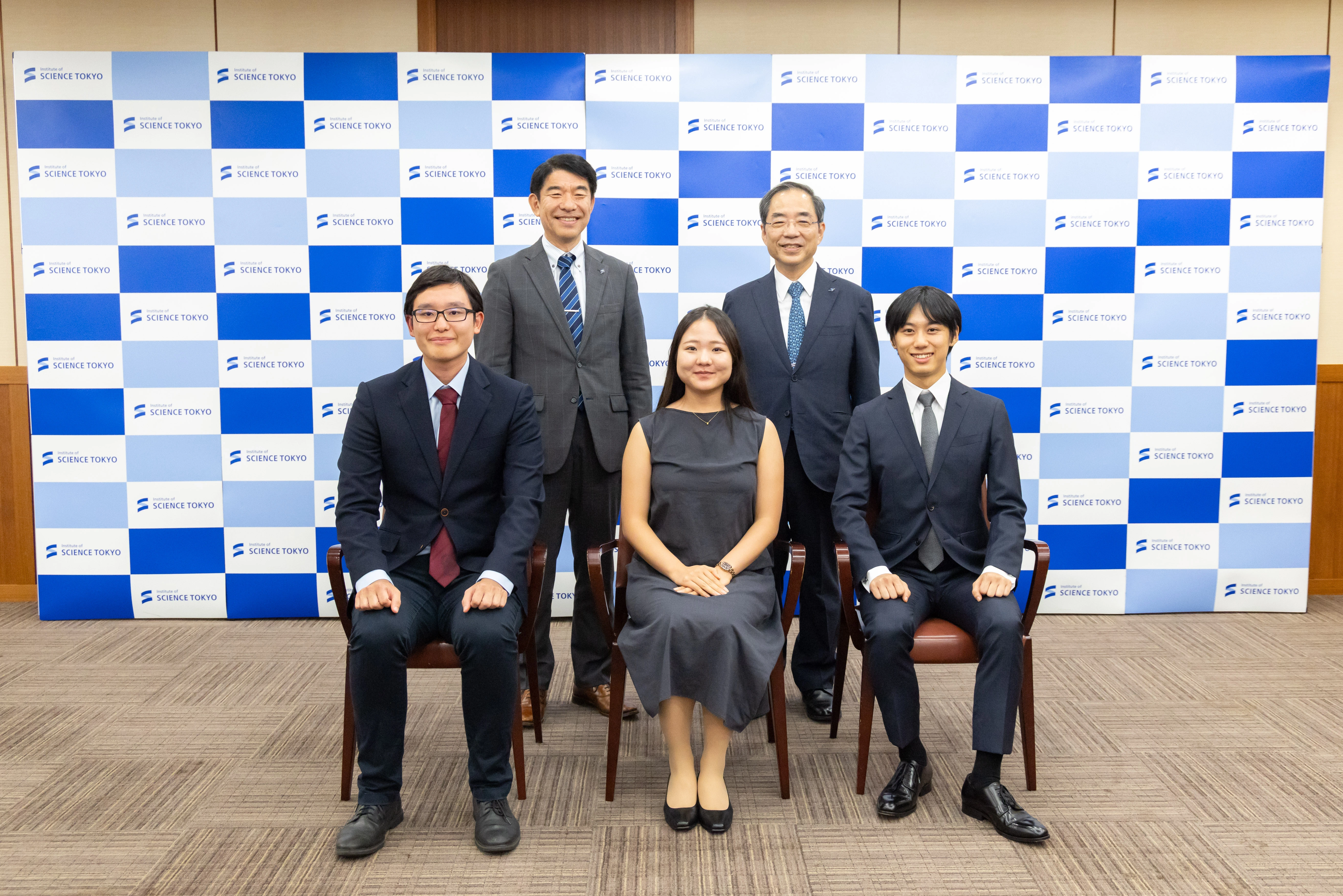First Science Tokyo cohort reflects on Imperial iBSc experience

Two fourth-year medical students and one MD-PhD student from Science Tokyo became the first students from a university outside of the UK and Ireland to complete Imperial College London’s Intercalated BSc programme at the Faculty of Medicine in June 2025.
Imperial College London (Imperial) and Science Tokyo have maintained a strong academic partnership, especially in the area of student exchange, since 2004. To date, more than 160 medical students in total from both universities have participated in exchange programs at the counterpart institution, not to mention other exchanges such as the Imperial-Science Tokyo Global Fellows Programme involving science and technology students.
In the past, Science Tokyo typically sent 4 to 5 medical students annually to Imperial to undertake a five-month research project as part of their fourth-year curriculum, while Imperial sent 4 to 5 students each year to Science Tokyo for a twelve-week research placement – a practice that will continue next year. In the hopes of making a truly transformative impact on the personal growth and future career development of a select group of Science Tokyo students, an exchange focused on the nine-month iBSc programme was developed to allow these students not only to conduct research but also to earn a Bachelor of Science degree alongside peers at one of the world’s most prestigious institutions.
The three students involved in this year’s programme report on their experiences below.
Mari Hinoue
4th-year medical student (iBSc course: Global Health)
When I first heard about the development of this program, I became immediately interested. It was an unmissable opportunity — to study and earn a degree at one of the world's top universities, with financial and administrative support from Science Tokyo. Imperial ranks top in the UK for research output and environment. Research in global health has been progressing rapidly in the UK, offering perspectives that can further enrich the strong foundation I built at Science Tokyo. I was eager to learn aspects that would complement my experiences in Tokyo
Although I made up my mind early on to apply, achieving the required language proficiency score was not easy. Actually, I wasn’t able to do it before submitting my initial application. However, with advice from Science Tokyo staff and senior students, I eventually succeeded.
The preparatory course offered at Science Tokyo consisted of one-on-one sessions on essay writing and presentations which I had never been taught in such depth before. Since the iBSc programme involves a lot of writing and presenting, the preparatory course equipped me with the necessary skills. The topics were my choice, which allowed me to explore my academic curiosity and deepen my understanding of iBSc areas of study.
Finally, September came. It was my first time leaving Japan for such a long period, and I felt a little nervous about being Japanese in Europe. However, I actually found it more comfortable living in such a diverse environment than I do in Japan. I didn’t feel like I stood out, and everyone made me feel welcome. Also, since London is a big city like Tokyo, the people have similarities which made me feel even more comfortable.

Kai Kanematsu
4th-year medical student (iBSc course: Neuroscience and Mental Health)
When I began classes at Imperial, I quickly noticed how different the learning environment was from what I was used to in Japan. There is a strong focus on discussion, critical thinking, and self-directed study. This helped me grow by encouraging me to engage more actively with the material and to consider different viewpoints and approaches to problem-solving. While I had already begun developing these skills at Science Tokyo, studying abroad allowed me to see them from a new perspective and apply them in different academic and cultural contexts. Over time, I began to appreciate how this approach deepened my understanding of medicine in ways that extended beyond memorising facts.
What stood out most was the opportunity to be immersed in ongoing academic research throughout the program. I heard that in some cultures, it is common to simply follow a textbook or pre-set lab manual. But at Imperial, we were expected to search for and read primary literature, think independently, and contribute to ongoing scientific conversations.
This was intimidating at first, but the structure of the course with regular one-on-one supervision, feedback sessions, and peer collaboration helped me grow more confident. I felt like I was being trained not just to absorb knowledge, but to create it.
Living in the dorms was another unique experience. I shared a kitchen with students from all over the world, and we often cooked together or talked late into the night. I learned not just about science, but also about different cultures, beliefs, and lifestyles.
Of course, there were times when things felt difficult, especially while writing long essays in English or adjusting to the different lifestyle. But these challenges ended up being opportunities to stretch myself and learn in ways I never expected.

Yuichiro Hara
3rd-year MD-PhD student (iBSc course: Immunity and Infection)
The last several weeks were the most challenging part of the iBSc programme. The program is divided into three “modules.” Modules 1 and 2 focus on the development of the academic skills necessary to participate in scientific research, and Module 3 is the culmination of the entire program.
Module 3 is quite similar to the Project Semester of the Faculty of Medicine at Science Tokyo, where each student is assigned to one research project, conducts supervised research, and prepares a final report and oral presentation. However, even discounting that the iBSc is conducted in English, Module 3 was much harder for me than the Project Semester. This was due to the more concentrated course structure, which requires faster progress. Nevertheless, as in Project Semester, the important thing was the process rather than the results. In addition, I was grateful that the instructors took the time to provide detailed feedback to ensure the students understood our strengths and areas for improvement.
This experience in a different country, studying in an environment similar to our university but still different, led to significant personal growth for me, providing me with a more multifaceted way of thinking. I learned to navigate different academic cultures, integrate diverse perspectives, and approach problems from multiple angles rather than relying on a single, familiar methodology. Looking ahead, I am eager to apply this broadened perspective to my future career in research and/or medicine. Whether I am diagnosing a complex patient case or designing a new research study, the ability to consider diverse viewpoints and synthesise information holistically will be indispensable.
In short, the iBSc programme not only deepened my scientific knowledge, but also helped me develop a more adaptable and comprehensive mindset. I am confident this experience will empower me to make meaningful contributions to the medical field in the future.

Contact
Yushima Study Abroad Support Group, Global Education Division
- Tel
- +81-3-5803-4982
- ossu@ml.tmd.ac.jp